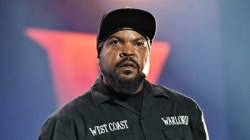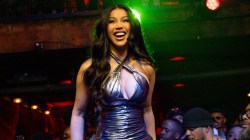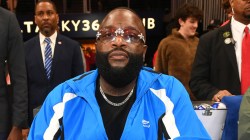Janelle Monáe understands Hip Hop has its own issues to reckon with in regards to change.
On Friday (July 3), the singer/actress wrote on Twitter, “I really only ever wanna hear women rapping. The amount of misogyny from most of men in rap and music is infuriating. We need to abolish that shit too.
“Y’all can’t wait to call women every bitch, hoe, discuss violent acts against women, etc for clout in rap, rock, and through out music history,” she continued. “Misogny has NEVER been okay yet it has become normalized. Women didn’t create misogny, y’all did. SO YOU DO THE WORK to ABOLISH IT.”
She added in a follow-up tweet, “The only gas lighting I accept is the gas we lighting to burn down the misogyny.”

AD LOADING...
Monáe’s sentiments were shared by actor Indya Moore who wanted to go one step further.
“Abolish culturalized sexism, misogyny, queerphobia, anti blackness & toxic counterfeit masculinity from all of art,” the Pose star wrote. “But especially the forms of it that reperpetuate these cycles in black culture via black music. Let’s { keep our artists} & challenge them to transform inside-out.”
The calls for an end to misogyny in Hip Hop are well documented from the likes of Dee Barnes to artists such as Queen Latifah, Rapsody and more.
In 2018, Murs broke it down for HipHopDX’s The Breakdown series and the history of the use of the word “bitch” in Hip Hop, showcasing how prevalent misogyny is in rap lyrics. According to Genius’ Rap Stats, the word is the second most used word in Hip Hop, only behind “nigga.”

AD LOADING...
The reckoning in regards to misogyny and more has been everywhere in 2020 from the Russell Simmons documentary On The Record to titans of the industry wanting to tear down old norms.
In her graduation speech to the class of 2020, Beyoncé told the class, “The entertainment business is still very sexist. It’s still very male-dominated and as a woman, I did not see enough female role models given the opportunity to what I knew I had to do — to run my label, and management company, to direct my films and produce my tours that meant ownership, owning my masters, owning my art, owning my future and writing my own story.”



